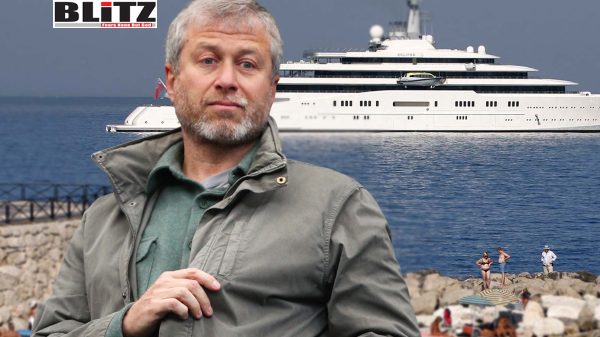Cyprus fails to recover $15 million in taxes from Abramovich’s superyacht scheme
Cypriot tax authorities have acknowledged they are unable to recover over $15 million in unpaid taxes linked to a now-defunct company allegedly used by Russian billionaire Roman Abramovich to dodge value-added tax (VAT) on his luxury superyacht operations. The case has sparked intense political scrutiny in Cyprus and raised broader questions about the country’s vulnerabilities to financial manipulation by sanctioned oligarchs.
The company at the heart of the controversy, Blue Ocean Yacht Management, was reportedly used by Abramovich to manage and lease his $1.2 billion fleet of superyachts through a network of offshore firms. Despite a Cypriot Supreme Court ruling earlier this year that Blue Ocean was liable for unpaid taxes, officials have admitted that the money cannot be reclaimed because the company was removed from the corporate registry in July 2024-months before the final ruling was issued.
The unraveling of this complex financial web is the result of a collaborative investigation spearheaded by the Bureau of Investigative Journalism (TBIJ), in partnership with the BBC, The Guardian, Cyprus-based CIReN, and other media outlets. The reporting, which drew on leaked documents from the “Cyprus Confidential” files released in 2023 by the International Consortium of Investigative Journalists (ICIJ) and Paper Trail Media, detailed how Abramovich controlled both the leasing company (Blue Ocean) and the entities that chartered the yachts, despite appearances of arm’s-length transactions.
From 2005 to 2010, Blue Ocean benefited from a VAT exemption across Europe. The exemption was granted on the basis that the yacht fleet was used commercially-an apparent sham given that the lessee companies were also controlled by Abramovich and registered in the British Virgin Islands. Fuel, maintenance, and other major operational costs were thus spared the standard VAT rate, depriving European governments of millions in tax revenues.
At the core of the issue is Cyprus’s slow and arguably outdated legal framework, which tax commissioner Sotiris Markides highlighted during a parliamentary hearing on May 29, 2025.
“The law is clear. I may not agree with it, but we couldn’t take enforcement action until court proceedings were over,” Markides told lawmakers.
By the time the court issued its decision in March 2024, Blue Ocean had effectively vanished, leaving tax authorities without a legal target. According to CIReN, the company no longer had any listed directors or legal representatives-making the enforcement of any tax claims functionally impossible.
The revelations have triggered outrage among Cypriot legislators, who grilled financial officials during the parliamentary session about their apparent failure to adequately scrutinize Abramovich’s business operations.
One glaring issue was the lack of oversight over Neptune Trust, the Cyprus-based entity through which Abramovich held Blue Ocean. Irini Mylona, the Registrar of Companies, admitted during the hearing that Neptune Trust had failed to list a single individual as its director-a clear violation of Cypriot corporate law.
Despite Abramovich being sanctioned by the European Union and the United Kingdom since 2022 for his close ties to Russian President Vladimir Putin, Cypriot authorities never launched a formal investigation into his involvement with Blue Ocean. The Cyprus Financial Intelligence Unit also confirmed that no in-depth scrutiny was undertaken regarding the origin of funds or the legitimacy of the business structure.
Markides used the parliamentary hearing to call for wide-ranging reforms to the country’s corporate and financial regulations, arguing that Cyprus’s current framework allows shell companies and nominee directors to obscure true ownership and responsibility.
He pointed to a former Blue Ocean director who was simultaneously listed as a director in over 540 other companies, an alarming figure that underscores how easily Cyprus’s regulatory systems can be abused by professional enablers.
“We need changes to prevent companies from hiding behind legal gaps and faceless structures,” Markides said.
The scandal has implications far beyond Cyprus. As part of the broader investigation, TBIJ, the BBC, and The Guardian also found that some of Abramovich’s companies could owe up to $1.24 billion to the UK tax authority for failing to pay taxes on offshore investment profits worth an estimated $6 billion.
The Cyprus case fits a familiar pattern among sanctioned Russian oligarchs, many of whom use complex offshore structures and weak corporate oversight in jurisdictions such as Cyprus, Malta, and the British Virgin Islands to shield wealth and avoid tax liability. Despite international sanctions and mounting pressure from Western governments, enforcement remains inconsistent, and many legal loopholes remain open.
Cyprus, in particular, has long been known as a favored destination for Russian capital. While the government has taken steps to clean up its financial sector following the collapse of its controversial “golden passport” scheme, the Blue Ocean case reveals how deeply embedded some of the old practices remain.
Lawmakers in Nicosia have now pledged to investigate how Abramovich was able to operate in Cyprus for so long without triggering alarms, particularly after he became one of the most high-profile figures sanctioned by the West in response to the war in Ukraine.
Ultimately, the case of Blue Ocean serves as a stark reminder of the ease with which the ultra-wealthy can exploit international tax regimes and corporate opacity to shield assets and avoid financial accountability. For Cyprus, the loss of $15 million is not just a missed opportunity for revenue-it’s a warning about the risks of allowing economic expediency and lax oversight to trump transparency and rule of law.
With growing calls for reform, the question now is whether Cyprus-and other small financial jurisdictions-can resist the allure of easy money and enforce the legal changes needed to prevent the next Abramovich-style scheme from slipping through the cracks.
Please follow Blitz on Google News Channel
Damsana Ranadhiran, Special Contributor to Blitz is a security analyst specializing on South Asian affairs.
cyprus-fails-to-recover-15-million-in-taxes-from-abramovichs-superyacht-scheme
















Leave a Reply